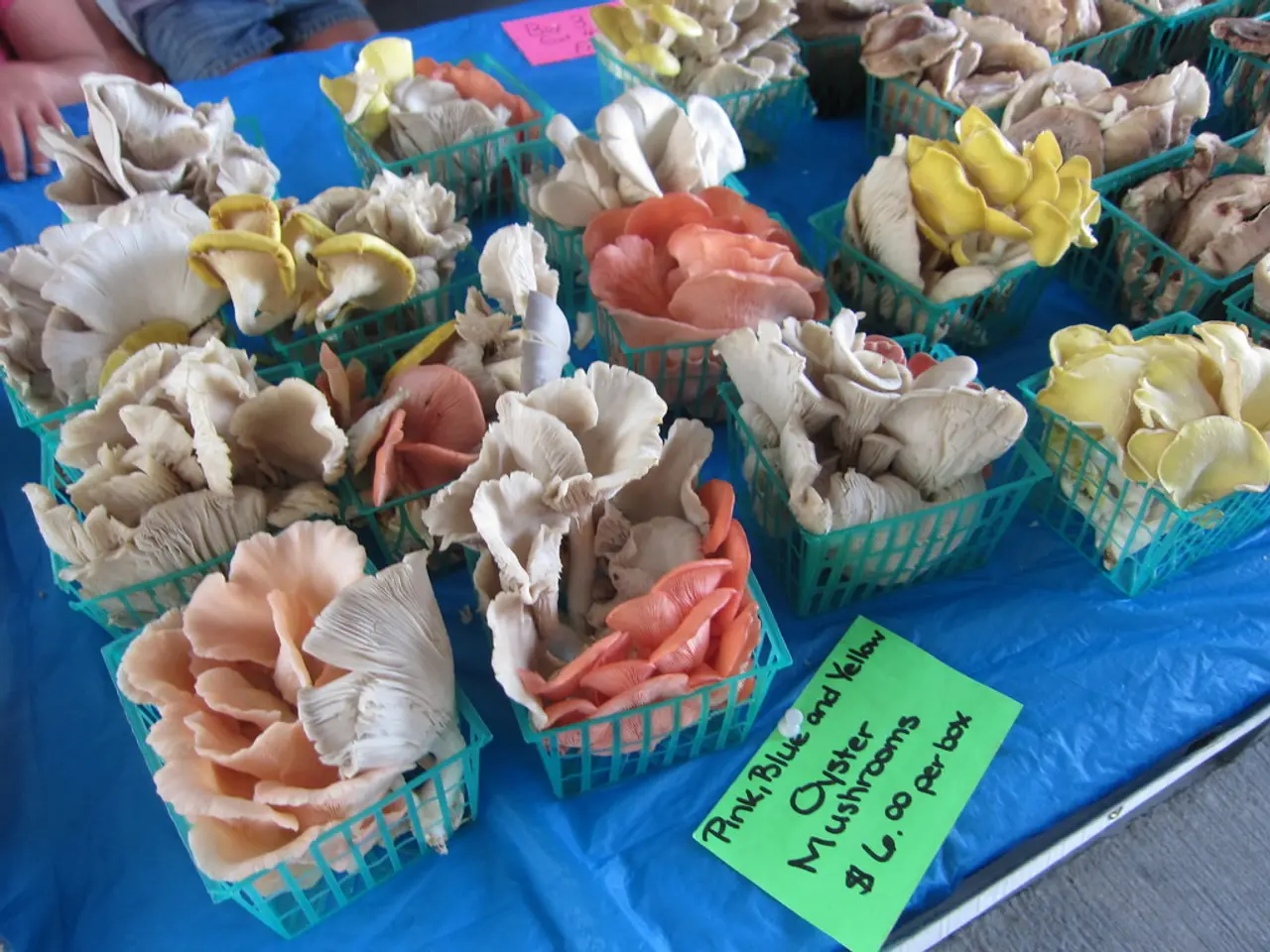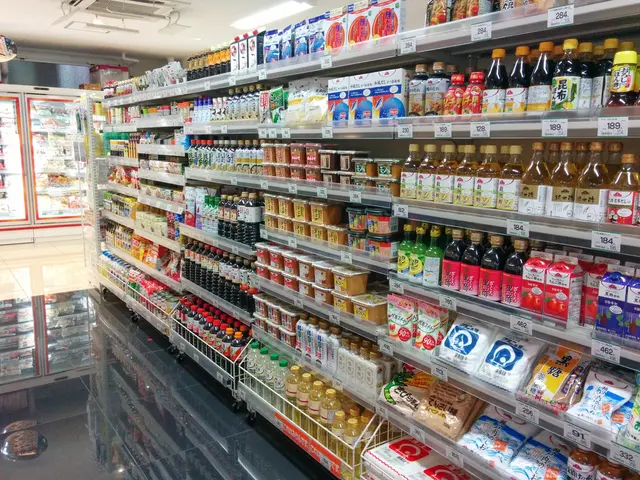July's inflation rate moderates to 0.9%
In a welcome development for the Filipino economy, the inflation rate in the Philippines dropped to 0.9% in July 2025, marking a significant decline from 1.4% in June and 4.4% in the same month last year [1][2]. This is the lowest inflation rate since October 2019.
The primary factors contributing to this decrease are:
- Slower annual increase in costs for housing, water, electricity, gas, and other fuels. The costs for these essential services rose by 2.1% in July compared to 3.2% in June, easing inflation pressure [1].
- Faster annual decrease in the transport index. The transport index dropped by 2.0% in July versus a 1.6% decline in June, reducing transportation-related inflation [1].
- Significant decline in food prices, especially rice, corn, vegetables, and tubers. Rice prices dropped by 17.8%, and corn by 17.7%, notably easing inflation for the bottom 30% income group who are more vulnerable to food price changes [2].
- The overall food and non-alcoholic beverages index recorded a strong deflation of -3.0% in July, further curbing inflation [2].
These factors combined have led to a lower inflation rate, with the year-to-date average inflation (January to July 2025) dropping to 1.7% [1][2].
Government support programs such as the Kadiwa ng Pangulo initiative, which offers rice at subsidized prices to low-income families, have helped protect purchasing power and contributed to the easing inflation [2]. The Department of Social Welfare and Development (DSWD) is providing subsidized rice at P20 per kilo to beneficiaries under the "Walang Gutom Program" via the Kadiwa ng Pangulo initiative.
It's worth noting that the rice index has declined for 13 consecutive months [3]. As of July 11, ASF-affected barangays have been reduced to 28, down from 534 at the outbreak's peak in October 2024 [4]. The Department of Agriculture (DA) has mobilized P495.4 million in agricultural inputs, including rice, corn, and vegetable seeds, to mitigate the impact of recent tropical storms and maintain a stable agricultural supply [5].
The DA also expects the arrival of 150,000 additional African Swine Fever (ASF) vaccine doses from Vietnam this month [4]. However, core inflation slightly rose to 2.3% in July 2025 from 2.2% the previous month [6].
The Bangko Sentral ng Pilipinas expects 2025 inflation to stay below the lower end of its two to four percent target, but has warned of external risks such as geopolitical tensions and global economic uncertainty [7]. Inflation for the bottom 30% income group in July 2025 was -0.8% [2]. The sharp fall in rice prices has significantly eased the cost of living for low-income households, according to the Department of Economy, Planning, and Development (DEPDev) [6].
[1] https://www.philstar.com/business/2025/08/03/2203355/inflation-eases-0-9-july-bsp [2] https://www.bangkoSentral.gov.ph/news/pressreleases/2025/pr20250803.htm [3] https://www.rappler.com/business/651933-rice-prices-decline-13th-straight-week [4] https://www.manilatimes.net/2025/07/22/business/business-top/asf-affected-barangays-down-to-28-from-534/974791/ [5] https://www.philstar.com/business/2025/07/20/2202867/da-mobilizes-p495-4-million-agri-inputs-tropical-storms [6] https://www.bworldonline.com/content.php?section=Economy&title=Philippine+inflation+eases+to+0.9-percent+in+July&id=211332 [7] https://www.bangkoSentral.gov.ph/news/speeches/2025/s20250715.htm
- The government's initiative, Kadiwa ng Pangulo, offering subsidized rice to low-income families, has helped protect purchasing power and contributed to the easing inflation.
- The Department of Social Welfare and Development (DSWD) is providing subsidized rice at P20 per kilo to beneficiaries under the "Walang Gutom Program" via the Kadiwa ng Pangulo initiative.
- The Department of Agriculture (DA) expects the arrival of 150,000 additional African Swine Fever (ASF) vaccine doses from Vietnam this month to help maintain a stable agricultural supply.
- The Department of Economy, Planning, and Development (DEPDev) has noted that the sharp fall in rice prices has significantly eased the cost of living for low-income households.





